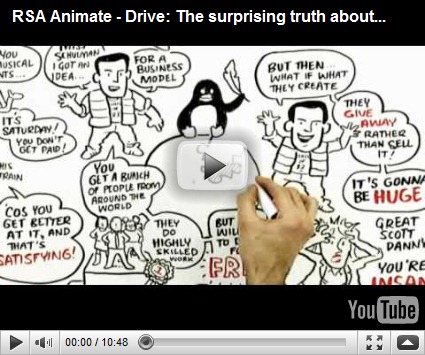I love it when my pithy observation is actually real
/A reader of this blog had some valuable insight in relation to my last post on skin care.
It turns out that I was right. Men’s skin is superior to women’s skin!
Check it out:
A man’s skin is about 20% thicker than a woman’s and is usually firmer because it is richer in collagen and elastin levels. This is why many men tend to age without as many deep-set wrinkles and fine lines as women.
Unlike female skin, male skin also has larger pores, a richer blood supply, and more active sebaceous glands. This means male skin is more prone to sweating and tends to be on the oilier side. While oily skin types have been known to age better than most, men who shave daily deal with the challenge of dry and dehydrated skin.
You are probably not real
/According to some researchers, there is at least a twenty percent chance that we are currently living in a computer simulation. In fact, if you accept a pretty reasonable assumption of Oxford University’s Dr. Nick Bostrom’s, it is almost a mathematical certainty that we are living in someone else’s computer simulation.
“This simulation would be similar to the one in The Matrix, in which most humans don’t realize that their lives and their world are just illusions created in their brains while their bodies are suspended in vats of liquid. But in Dr. Bostrom’s notion of reality, you wouldn’t even have a body made of flesh. Your brain would exist only as a network of computer circuits.”“Dr. Bostrom assumes that technological advances could produce a computer with more processing power than all the brains in the world, and that advanced humans, or ‘posthumans,’ could run ‘ancestor simulations’ of their evolutionary history by creating virtual worlds inhabited by virtual people with fully developed virtual nervous systems. Some computer experts have projected, based on trends in processing power, that we will have such a computer by the middle of this century.”
I’ve explained this to several friends who find the information rather unnerving. But I’m not sure why.
If there is no conscious difference between the real world and a simulation, wouldn’t it be better to be part of the simulation?
Lose control of your SUV and run over a child and you’ve only destroyed a series of bits and bytes and not actual flesh and blood.
Sounds good to me.
Consequences would be considerably degraded (even if it were unconsciously so) while success and achievement, even in a simulated environment, would continue to carry the benefits and prestige that the world has assigned to it.
Not a bad deal until some advanced human civilization pulls the plug.
Fuzzy time tables
/Earlier this year, the Spirit and Opportunity rovers, which are still sending images back from Mars, celebrated their sixth anniversary on the red planet.
The mission was slated to last only three months.
In 1997 the Mars Pathfinder mission lasted more than three months when it was originally expected to cease functioning in a week to a month.
Am I the only one who suspects that these extended mission times have more to do with NASA’s inability to calculate the expiration date of their equipment and less to do with the surprisingly well built and remarkably efficient machines?
Or even more likely, is it possible that MASA purposely underestimates the length of their missions in order to avoid the perception of failure? Perhaps Spirit and Opportunity were originally projected to last ten years, but wanting to bolster public support and increase the overall perception of the effectiveness of the agency, NASA officials underreported the expiration dates of this equipment in order to impress the general public when the machines double and triple their projected lifespan.
After all, is it really impressive for engineers to be so inaccurate when it comes to estimating the length of time that these machines will function? They are starting to sound like meteorologists.
“It’s going to snow six to twelve inches tonight,” which really means, it’s going to snow six inches, or twice that amount.
With variances like this, how could one get a forecast wrong?
Same thing with the NASA engineers: Spirit and Opportunity are going to function for three months, or possibly sixty months. I thought these guys were smart.
Am I also the only one who remembers the Viking program of the 1970’s, which also placed two landers on Mars? Though these landers were not mobile, they sent back many images of the planet and conducted a score of experiments as well, and they managed to last three and six years before finally ceasing to function, one because of a battery failure and the other due to human error in a software update.
To put that in perspective, thirty years before we landed Spirit and Opportunity, we managed to land similar craft on the surface of the planet in order to take photos and conduct experiments, and one of these machines, launched during Gerald Ford’s Presidency, managed to last longer than our current Mars missions.
Don’t get me wrong. I’m as excited as the next guy about all the recent discoveries made by this current mission, but I’m just skeptical about the time frames and not as overwhelmed with awe as many seem considering that thirty years ago, we managed to do accomplish something very similar.
How soon we forget.
I’ll sleep when I’m dead
/I’ve often argued that the amount of sleep a person needs and his or her subsequent alertness is more a state of mind than actual physiology. Of course, this is coming from a guy who just slept four hours last night and is feeling just fine, so my opinion is admittedly biased.
But new research seems to be at least leaning in my general direction.
A study from the University of Vermont and appearing in Psychopharmacology this year has found that the effects of caffeine on a person’s alertness could be completely psychosomatic. The study has found that “once people get through caffeine withdrawal — terrible headaches, among other unpleasantness — they feel just as wide-awake on a placebo as they do on caffeine.”
In fact, it appears that the use of caffeine only serves to eliminate the withdrawal symptoms that its habitual use can cause. So for all those people who claim to require a cup of coffee in the morning to wake up, it appears they really need a shot of caffeine in order to eliminate the withdrawal symptoms that they are suffering from going without caffeine all night long.
What one might term a vicious circle.
I have often argued that caffeine has no effect on me as well, though this argument usually pertains to my ability to fall asleep quickly and not so much my alertness, since I don’t sleep much anyway. I don’t drink coffee or tea, and most of the soda that I drink is caffeine-free Diet Coke, so my caffeine intake is limited. But if I’m at the movies or out to dinner, I’m usually drinking the caffeinated brand of Diet Coke and never have difficulty falling asleep a couple hours later.
Nevertheless, quite often I hear that people cannot drink coffee or soda after 6 PM because it will keep them up all night. This has been a hard claim for me to swallow, since nothing prevents me from falling asleep almost instantaneously. I suspect that these effects are also psychosomatic.
I have always believed that if you cannot fall asleep quickly, you didn’t work hard enough that day.
What I’d like to see if a study on how the perception of sleep impacts alertness. If you think you slept for eight hours when you actually slept five, would your alertness be the same as if you had actually slept the eight hours?
I have always suspected so.
Moose!
/When I was seventeen years old, I was canoeing across a lake in northern Maine. The lake was so large that I couldn’t see the shore on three sides. The water was still, the air humid, the sun high in the sky. The only sounds were the distant twitters of birds and the gentle splashes made from oars striking the water.
The out of nowhere, across our bow, a moose swam by.
A moose!
Well over a mile from the nearest shore, a moose paddled by, calm and relaxed in its strokes.
I couldn’t believe it. And when I told my wife about the encounter years later, she didn’t believe me either, until I directed her to the Internet and some amazing facts about moose.
First, moose can swim great distances and have been known to migrate from island to island, sometimes crossing ocean water in order to do so. In fact, the moose on the Isle Royale in Lake Superior have been spotted on nearby smaller islands around the main island because they swim across to give birth. This allows for them to give birth and raise their young without the threat of wolves preying on their young when they are vulnerable. Once the calves are physically mature, they are able to swim back, and are then able to better protect themselves from wolves, as they are then in their prime years.
Moose have even been found in the belly of killer whales off the coast of Alaska.
These are just a few of the amazing facts that I have discovered about moose since seeing that moose swim in from of my canoe twenty years ago. I’ve actually written a children’s book about moose as a result of my encounter and my subsequent research, and perhaps someday, I will try to have this book, along with the many other children’s books that I have written, published.
But I have THE CHICKEN SHACK on my plate at the moment and another book just begging to be written, so they’ll have to wait.
But I was reminded about my moose encounter today when I was directed to this photograph of our twenty-sixth President, Teddy Roosevelt, riding on the back of a moose in order to ford a river.
More than likely the photograph was staged in order to promote Roosevelt’s failed attempt at launching his Bull Moose party, but still bad-ass nonetheless.
Broccoli is poison. Seriously.
/And another thing about my genetically superior taste buds: A new study takes this argument one step further, providing evidence that broccoli (and its leafy cousins) are actually toxic to more than a billion people worldwide because of a component inside the vegetable that inhibits thyroid function. Thanks to evolution, individuals to whom broccoli is toxic also find the vegetable and its cousins unpalatable.
You can read more about this study here or listen to the podcast that summarizes the research here.
More importantly, to those self-righteous, so-called sophisticated palates who are constantly finding the need to judge me based upon the foods I choose to eat or avoid, I now have further evidence that I have no control over what I find edible.
In fact, my choices might be keeping my thyroid working efficiently.
It’s evolution. So leave me the hell alone.
Must listen
/I have always recommended the RadioLab podcast to all of my friends, but I cannot recommend this week’s episode on Parasites (yes, parasites) highly enough. Turn off the television tonight (unless you’re watching the Patriots on Monday Night Football) and give it a listen. It’s better than anything you’ll find of the tube.
Except for football, of course.

